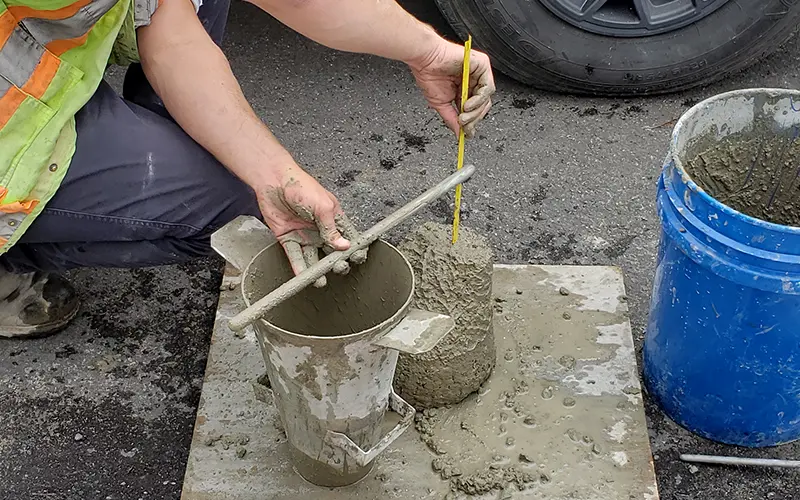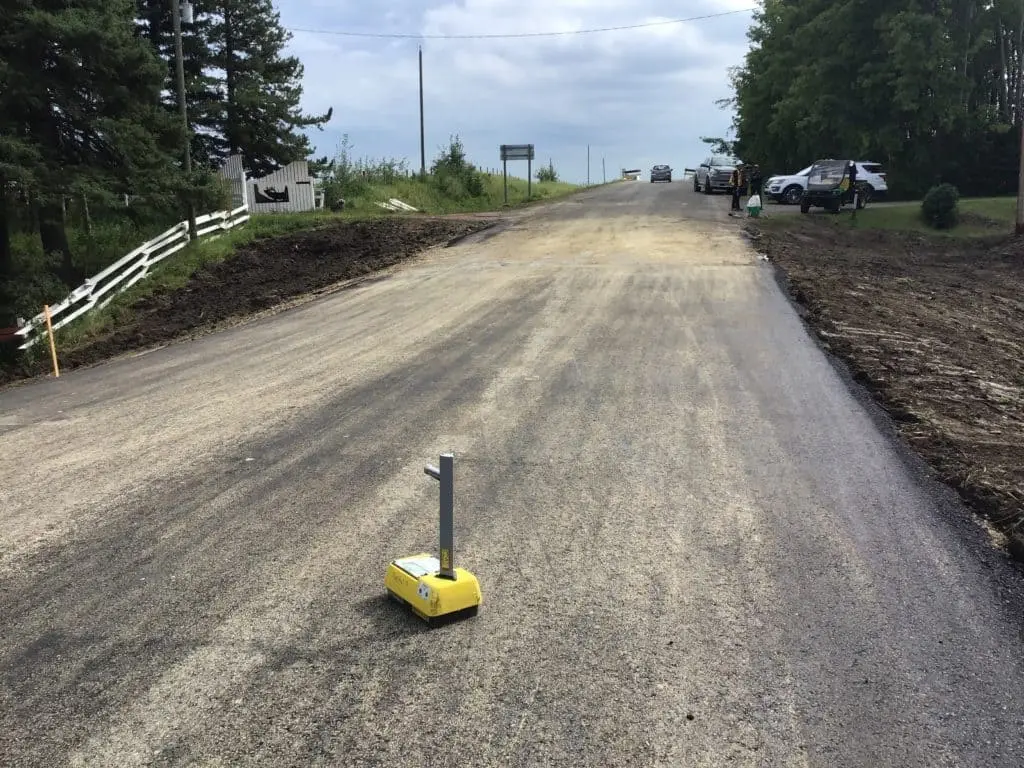The natural power of soil makes it an ultimate factor in deciding whether the construction project would be a success or a disaster. Soil testing in Edmonton is the most crucial one as it is a detrimental characteristic for examining wet or dry soil. When you buy land to build a building, home, or any other corporate project; soil quality testing in Edmonton is more important. The composition of land soil can shake everything from plumbing to foundations. There are many soil testing for construction in Edmonton that can help in the power decision to buy or build any construction project.
What is Soil Testing?
Soil testing in Edmonton forms a number of things to understand if the land is appropriate for construction. Few tests evaluate the soil’s texture and composition to decide its structural stability. While others involve testing for contaminants, dryness, and wetness. Soil testing for construction in Edmonton is mainly done to check the bearing capacity. The physical and chemical composition of the soil is evaluated during this process. The relative soil must have the capacity to endure the weight of the building. Soil Quality Testing in Edmonton not only defines the bearing capacity but makes sure to determine the structure stabilization. Moreover, the structural stability depends upon various characteristics including weather, climate change, and the reason for the land deployment previously. As soil needs to resist the weight of the building. If the soil doesn’t have the ability to resist the weight of the building; it might collapse.

Why Soil Testing in Edmonton is Important for Construction?
Soil has everything to do with the building foundation considering on-ground conditions. However, what creates solid foundations, and how to evaluate if the soil is appropriate for a construction project?
- Soil testing for construction in Edmonton helps in putting the foundation of the building. However, if the soil is unverified, the foundation set can get flaws and damages which subsequently alter the building’s strength and stability.
- Soil testing in Edmonton also defines the depth and length of the columns that will be implanted into the soil for the building’s foundation.
- The outcomes of soil quality testing in Edmonton are used to decide the likelihood of base problems and the finest construction techniques to use.
- The water content of the soil can be checked through lab soil testing in Edmonton.
- The level of the water content, measured by soil testing for construction in Edmonton, directs potential issues with the level of moisture inside the building foundation.
- The chemical and mineral composition of the soil can impact the construction material chosen.
- If soil examination shows that the soil contains sulfur. Sulfur-resistant cement is consumed to defend the building’s foundation.
- The importance of soil testing in Edmonton also determines the reactivity of the soil. Soil reactivity discusses how the soil responds to certain conditions on the field including expansion, contraction, or movement.
- Soil testing for construction in Edmonton is extremely decisive when multi-story apartments or structures are needed. This guarantees that fatal accidents or building collapses don’t happen.
Considerations Before Soil Testing for construction in Edmonton
Laboratory Soil testing in Edmonton
Construction projects are once in a lifetime opportunity now. However, builders need to opt for the services of accredited and authorized labs for soil quality testing in Edmonton. There might be a cost element in it but the long-term consequences are pretty good. You can hire lab soil testing near your region. Central Material Testing is offering its services for soil testing in Edmonton, Calgary, British Columbia, Alberta, Fort St. John, Chetwynd, Hudson’s Hope, and adjacent regions.
Best time to get soil quality testing in Edmonton
Starting with positivity and early detection is always key to successful construction projects. Get your soil testing in Edmonton at any time throughout the year at Central Material Testing. We offer onsite and lab testing with reliable results.
Permits and License
The big construction site projects that require broad work must have permits and licenses from the local authorities. This will take away the stress of afterward issues and delays in the construction projects. Complete all the requirements to manage the construction smoothly.

Types of Soil Testing in Edmonton
Soils containing organic matter will mold over time and move thus not suitable for foundation support. Unconfined sand has reduced bearing capacity and can create a lot of space and binding doesn’t work for long. Soil testing in Edmonton is performed to eliminate the soil that is inappropriate to support the building. Moreover, the soil is replaced before the foundation is built.
Sometimes the soil needs to be replaced because it is contaminated which might result in failure. Testing site soils satisfactorily and correctly helps in critical levels of safety and financial risks. Therefore, it is significant to comprehend the soil properties and make practice the acquired information for construction site planning and design. Here is the list of tests that should be performed to evaluate the real soil performance:
Atterberg Limits Test
Atterberg Limits soil testing in Edmonton helps in defining and measuring the water contents of the soil. This test has different stages:
- Shrinkage limit
- Plastic limit
- Liquid limit
Moisture testing
Soil testing for construction in Edmonton helps in assessing the moisture content of the soil. During construction it is vital to check the moisture content as deviations from the normal range can cause glitches in later stages. Excess moisture can cause corrosion. Soil samples are placed in ovens to check the relative time for moisture removal thus evaluating the right decisions. The moisture content can be evaluated by the difference in weight between wet and dry soil.
Gravity Test
Gravity tests are important for evaluating the soil properties like degree of saturation and void ratio. Two main and common tests that give accurate results are:
- The Pycnometer Method
- Density Bottle Method.
These tests include the ratio of the unit weight of soil solids to the water of the soil.

Soil Compaction Test:
The lab soil testing in Edmonton includes the Proctor compaction test for determining the optimum moisture content that identifies the soil type as either dense or reaches its maximum dry density. The binding and compaction of soil are determined with this test.
Above discussed key points have clearly explained why and how soil testing in Edmonton is important to save a lot for foundation costs and guarantee a safe, stable, and robust base for your construction project. Soil testing in Edmonton helps identify corrosive soil as well as soil liquefaction possibilities for handling and replacing it beforehand. Central Material testing offers you all the Soil testing for construction in Edmonton at affordable prices. Our services are reliable and we offer 24 hours result times for instant decisions related to your construction projects.



Leave a Reply